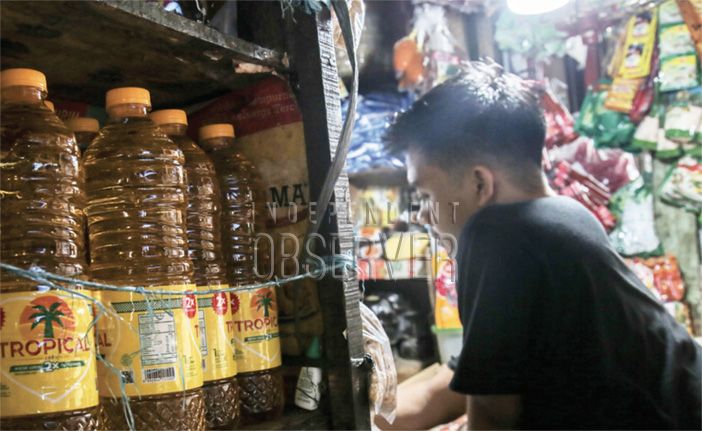
Cooking oil mafia?
However, there are also many parties who allege that the culprits in the cooking oil fiasco are big business players/exporters who are often called “mafia” or oligarchs who try to undermine and control the government policies to suit their interests to generate maximum profits at the expense of the ordinary people and the society as a whole. The term oligarch refers to a small group of elites, either conglomerates and/or rulers who hold a sway over state policies. The harsher term mafia, of course, refers to a group of criminals who carry out illegal and shady business practices.
However, it is still not clear what is meant by oligarchy or mafia in the context of cooking oil policy. Are they a group of tycoons who can regulate the supply, distribution and prices, or are they mere speculators who see the opportunity to profit from price differences and then conduct illegal trade practices? The trade minister said mafia are speculators who hoard and/or carry out smuggling. He also stated that he would hand over the names of those accused of fraudulent activities to the authorities as soon as possible.
In a stunning development, the Attorney General’s Office (AGO) arrested the Director General of International Trade as a suspect along with several people from the private sector on charges of granting export permits to companies that had not complied with domestic supply provisions based on DMO and DPO regulations. So far, those accused of speculative practices as suggested by the trade minister have not been arrested.
AGO later arrested one more suspect, Lin Che Wei a consultant to a number of government ministers, played a major role in this conspiracy, prosecutors say is accused of participating in manipulating and granting palm oil export permits. Lin, founder of Independent Research & Advisory Indonesia, has been charged for his alleged role as a key organizer working behind the scenes to secure export permits for crude palm oil (CPO) producers from the Ministry of Trade.

However, the Police’s Food Task Force said they have not received data from the Trade Ministry in relation to the names of businessmen or speculators accused of mafia practices behind the shortage of cooking oil supply in the market.
So, the mafia or oligarchy accusations is actually confusing and it adds to the ambiguity in handling the cooking oil policy issue. If the mafia is the suspects who have been designated by the AGO, they are definitely not individuals with significant power or influence to manipulate the supply and price of cooking oil. If what is accused of them is true, then this is simply a violation of the ministerial regulations. Thus, it is too early to say that a clique of palm oil tycoons is systematically conspiring to manipulate the supply and price of cooking oil. Even if there is such allegation, this is the domain of the Business Competition Supervisory Commission (KPPU). In addition, these accusations obscure the real underlying problem in the policy itself.
What actually happened is that the government policies, especially with regard to DMO and DPO, have created an environment that encourages profit-taking behavior by all players in the supply chain, especially in the distribution to engage in rent seeking and other illegal activities due to the distorted prices and disrupted market mechanisms. The ineffectiveness of policies is not caused by the oligarchic power but rather bad policies.
The Way Forward
The lesson that can be drawn from this cooking oil debacle is the importance of careful planning and preparation in designing and implementing a policy. In addition, accurate data, comprehensive problem identification, institutional capacity building and consistent law enforcement are prerequisites for the effectiveness of a policy. More importantly, a good policy should not disrupt a healthy market mechanism and distort prices. If the government wants to protect the lower middle-class community from price fluctuations, subsidies should be given directly to people, not the products or commodities.
The allegation of unscrupulous oligarchs and/or mafia in the palm oil industry who are able to arbitrarily determine the supply and price of cooking oil is an assumption that should be legally proven. Otherwise, it will only obscure the real problem. The use of the term itself is problematic from a legal point of view, as it has been proven to date that no mafia nor oligarch has been arrested and charged.
Now the export ban policy has been lifted and the DMO and DPO policies will be implemented again. It remains to be seen whether this policy will be effective in achieving its objectives. The hope is that all stakeholders, including the government, can draw lessons from the flawed policies they have implemented. (Mohamad Fadhil Hasan)

